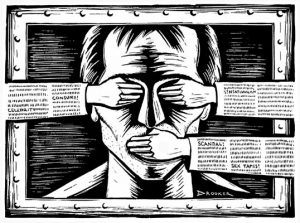Robert B. Talisse in 3:AM Magazine:
 It seems everyone these days laments the polarized condition of democratic politics. It is widely agreed that fake news is a central cause of the degradation of our political culture. That there is accord on this point is noteworthy. Perhaps the consensus on fake news offers a swath of common ground amidst all of the divisiveness? Maybe our shared condemnation of fake news provides a basis for a broader plan for rehabilitating democracy?
It seems everyone these days laments the polarized condition of democratic politics. It is widely agreed that fake news is a central cause of the degradation of our political culture. That there is accord on this point is noteworthy. Perhaps the consensus on fake news offers a swath of common ground amidst all of the divisiveness? Maybe our shared condemnation of fake news provides a basis for a broader plan for rehabilitating democracy?
Such optimism might be premature. The unanimity over fake news possibly owes more to the semantics of the word fake than to a convergence of political values. Note that to call something fake is, at the very least, to mark it as suspect; it is to say that it is posing as something it’s not. So, yes, everyone denounces fake news. We oppose that which professes to be news, but isn’t. But we do not thereby agree about which institutions and reports are authentic. Unless there is a shared view of what fake news is, the consensus about its dangers is likely merely verbal, thus providing no basis for a rehabilitation plan.
There is as yet no canonical definition of fake news. Still, there might be reason to hope. Perhaps we share a conception of fake news that is inchoate, waiting for an explicit definition. Given this possibility, we should attempt to devise a definition.
More here.
